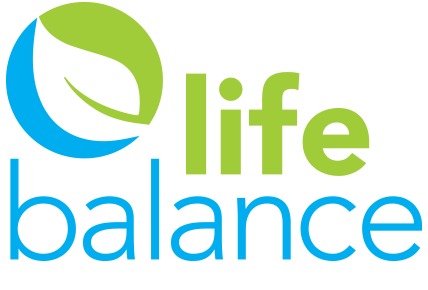The Enlarged Prostate: An Easy Nut to Crack
At the average age of 25, every man’s prostate begins to slowly grow in size. Medical science is not certain as to why this happens, but the suspicion is that it may have to do with the way hormone levels change as we age. Some men’s prostates enlarge to the point where they have specific symptoms related to urination, the most common symptom being the urgent and frequent need to urinate. This problem, called Benign Prostatic Hyperplasia (BPH), is very common among senior men. BPH occurs in about 50% of men in their 50’s and about 90% of men over the age of 80. An enlarged prostate causes several symptoms related to urination:
- Frequent or urgent need to urinate.
- Increased frequency of urination at night.
- Difficulty starting urination.
- Weak urine stream or a stream that stops and starts.
- Dribbling at the end of urination.
- Inability to completely empty the bladder.
Some of the factors that increase your risk of BPH include diet, obesity, diabetes, heart disease, a family history of prostate issues, and the use of “beta-blockers” (a type of medication used for high blood pressure).
So what can we do about it? Don’t go nuts! The good news is that it has been found that simple lifestyle changes can have a profound impact on BPH and that eliminating or improving risk factors can reduce symptoms. Maintaining an ideal weight, eating healthy and getting adequate exercise can help to lessen these irritating symptoms, and by extension, prevent BPH in otherwise healthy men.
There are a few specific tips that seem to help with men that are experiencing BPH symptoms. Avoid spicy foods, caffeine, excessive meat and overly acidic foods since they can irritate the bladder & prostate and worsen urination symptoms. Excess alcohol seems to irritate the prostate as well, but studies have shown moderate use of alcohol, such as a glass of red wine with dinner, may have some benefit. Since being constipated can make BPH symptoms worse, making sure to have plenty of fibre helps. In general, adults should be consuming 25 to 38 grams of fibre daily. Since frequent urination at night is a major symptom of BPH, stop drinking at least 2 hours before bed. Also, avoid over-the-counter antihistamines and decongestants as they can worsen BPH symptoms.
What should we eat to reduce BPH symptoms? In general, eating more vegetables and less meat & fat helps. Specifically, it has been found that garlic and onions are very beneficial, as are legumes such as green peas, beans and lentils. Dietary polyphenols, which are nutrients we get from plants, are promising in their ability to benefit the progression and severity of BPH. All fruits and vegetables fall in this category, but also tea, coffee, chocolate and wine. Of particular interest in this category are soybean, lycopene from tomatoes (counter-intuitively there is more lycopene available in cooked tomatoes) and flax seeds which are very powerful in reducing symptoms of BPH. Recent research suggests to avoid poultry, eggs, red meat, sugary desserts and the usual suspect, refined grains.
When it comes to lifestyle, there are two main factors that will lessen BPH or prevent it: ideal weight and regular exercise. The benefits of maintaining your ideal weight goes far beyond the positive effects on your prostate. It means that you have less chance of developing Type 2 Diabetes and heart disease. Use the internet to calculate your BMI and keep it under 25. While general exercise is excellent for both overall health and your prostate, specifically doing exercises that strengthen the pelvic floor muscles (remember Kegels?) are a great help to BPH symptoms.
One major factor in exacerbating the urinary symptoms of BPH is stress and nervousness. If you are the type of person who’s stress level tends to get a little nutty, it would obviously be pointless to say “don’t stress” because this is not something we choose. However, I can say that meditation can go a long way in reducing stress. Even simple breathing techniques can have a large impact on your stress level. Learn to take a minute out of your busy schedule to breath deeply using your abdominal area as the focal point for both your breathing and your attention. With a little practice and patience, you will be surprised at how much you can relax your body and mind. Regular exercise will also have a large impact in deceasing stress.
Are there any natural supplements that can help? Yes there are, however I would suggest to use them only secondary to diet and lifestyle changes, and only with the supervision of a licensed Naturopathic doctor. Low vitamin D seems to have an association with BPH, so its not a bad idea to check your levels and then supplement if needed. There is also evidence that an extract from the bark of the African cherry tree, Prunus africana, can relieve BPH symptoms.
In a nutshell, it seems that incorporating healthy habits into your life can reduce your prostate troubles, or preferably, prevent them from happening from the first place.
REFERENCES:
https://www.canjurol.com/abstract.php?ArticleID=&version=1.0&PMID=23930605
https://www.health.harvard.edu/mens-health/4-tips-for-coping-with-an-enlarged-prostate
https://nutritionfacts.org/2013/02/05/treating-an-enlarged-prostate-with-diet/
https://www.urologytimes.com/mens-health/alcohol-and-prostate-gland-friend-or-foe?page=0,1
https://www.urologyhealth.org/urologic-conditions/benign-prostatic-hyperplasia-(bph)

